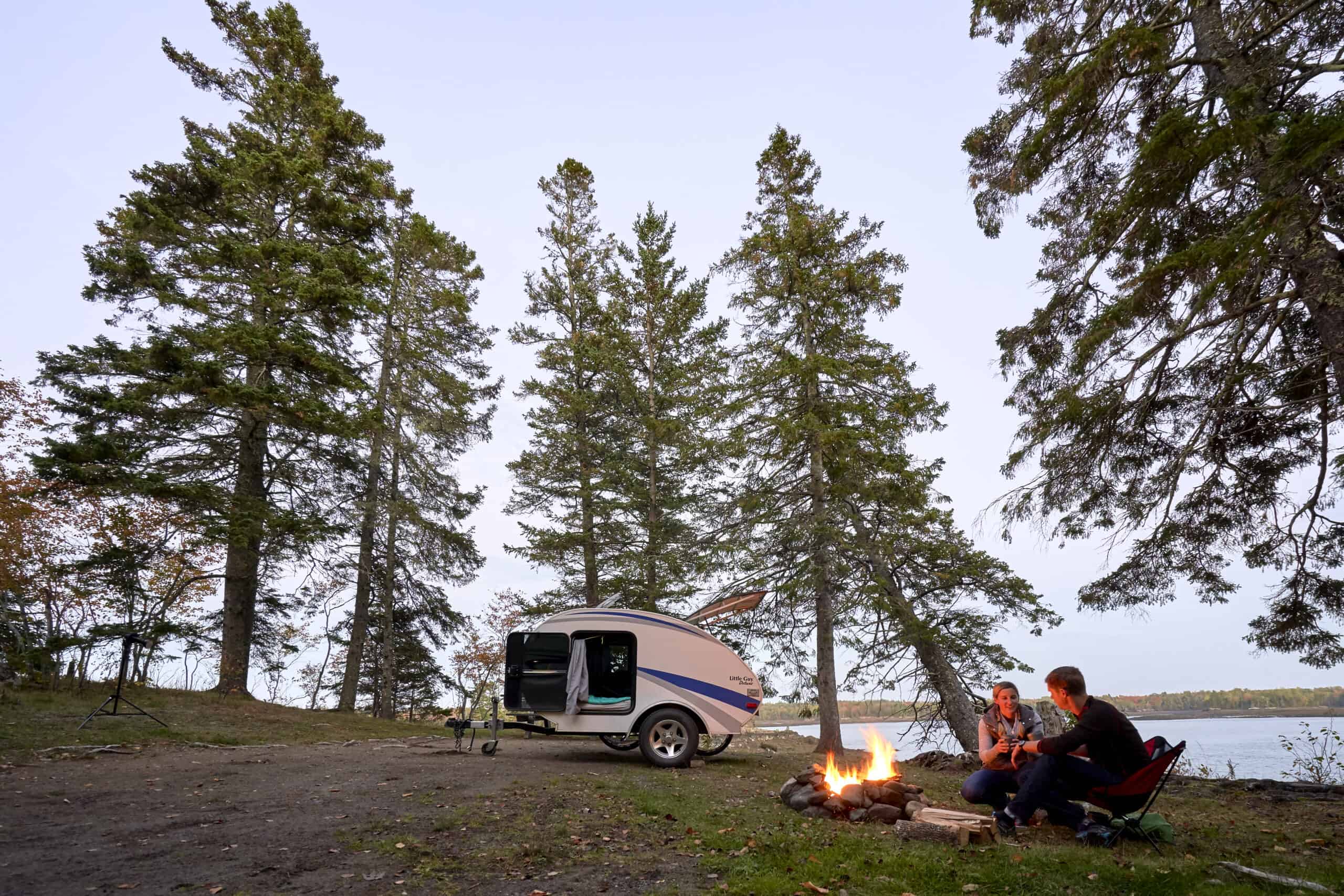Camping at Maine State Parks
When camping at a Maine State Park, your accommodations come with some, um, special options. You can walk a few steps from your tent to your canoe. You can watch the sun rise over the Atlantic while sipping your coffee. You can debate with yourself on whether you should climb a mountain or go for a swim – all without leaving the park.
Sure, state park campgrounds bring you close to the wild. But they’re not without amenities. Many provide room for RVs as well as tents and offer beaches, playgrounds, trails and other places for outdoor fun.
In southern Maine, campers can stay at Bradbury Mountain State Park near Freeport which known for its hiking and mountain biking, or at the very popular Sebago Lake State Park, on the south’s largest lake. Those wanting to camp among Maine’s western lakes and mountains can choose Rangeley Lakes State Park, nestled in one of the state’s fishing and sporting regions, or at Mount Blue State Park, known for hiking and water sports.

Maine’s MidCoast and Islands Region includes three state parks with campgrounds. Lake St. George State Park includes campsites that hug the shore of its namesake lake. Nearby Camden Hills State Park provides glorious coastal overlooks and views of the town of Camden. Camping at Warren Island State Park requires an adventurous spirit since there’s no ferry (bring your own boat) and the campground sits on a 70-acre island just off shore. Farther down the coast sits Lamoine State Park, an oceanside park close to Bar Harbor. Cobscook Bay State Park, in easternmost Maine, is on a wild and scenic section of the DownEast coast.
In Maine’s northern interior, campers can stay at Lily Bay State Park, on the shores of Moosehead Lake, the state’s largest. Peaks-Kenny State Park, on Sebec Lake, is known for boating, fishing and swimming. Aroostook State Park, Maine’s first state park, includes its own lake and mountain.
Want something wilder? Camping in Maine’s Public Reserved Lands lets you stay on state property with fewer amenities than state parks.

